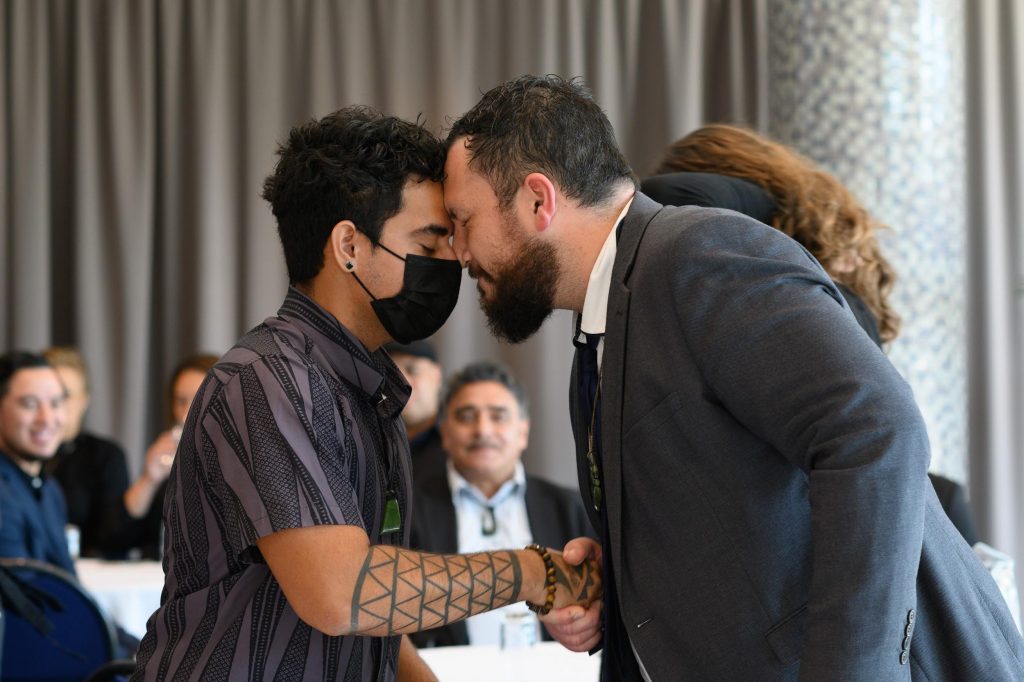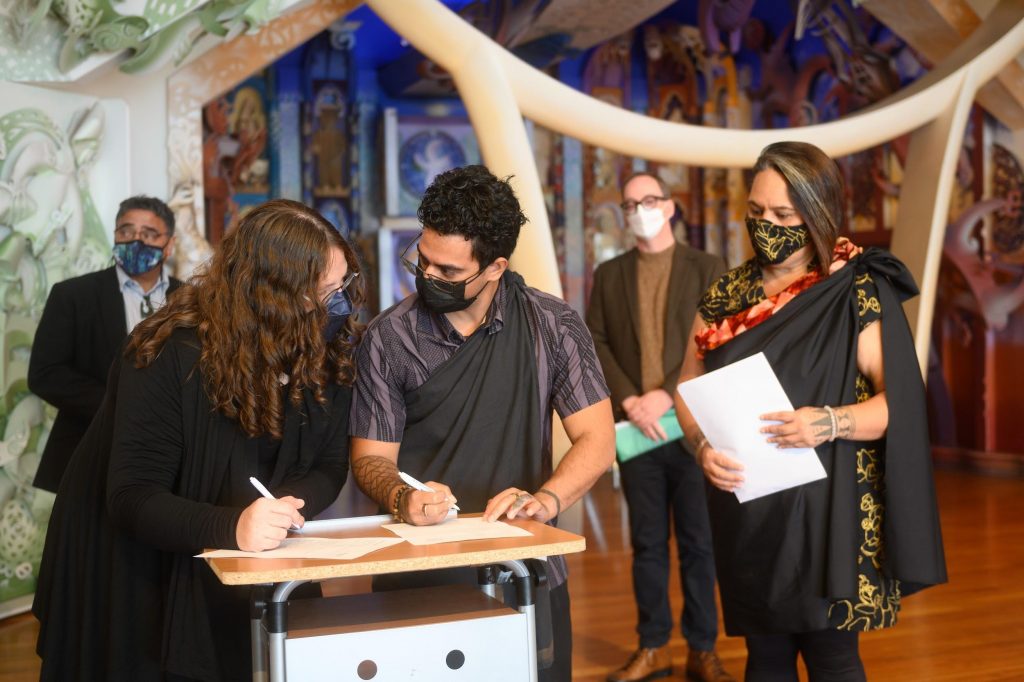After 150 years at New Zealand museum, Hawaiian ancestral remains repatriated

In 1860, the human remains of three Native Hawaiians were taken from the ahupuaʻa (land division) of Waikīkī on Oʻahu and ended up in the Canterbury Museum in Christchurch, New Zealand.
After 150 years, the three ancestors — a male aged 20-30, a female aged 20-30 and a female in her 40s — were handed over to the Council for Native Hawaiian Advancement during an historic ceremony on May 29.
The latest repatriation efforts followed months of successful repatriations in Germany, England, Ireland and Scotland by the volunteer organization Hui Iwi Kuamoʻo. The number of iwi kūpuna (ancestral human remains) now returned to Hawai’i through these efforts is 62.
“Caring for our Lāhui means supporting not only our people today and the generations yet to come, but also our ancestors who came long before us,” said Kūhiō Lewis, Chief Executive Officer of the Council for Native Hawaiian Advancement. “CNHA is humbled to kōkua Hui Iwi Kuamoʻo in its efforts to finally bring our kūpuna home.”
Since January, CNHA has committed $25,000 in funding to support Hui Iwi Kuamoʻoʻs efforts, which include significant international travel costs. There is a short window of time that requires action or museums may change their decision to repatriate.
This latest repatriation is the result of years of work by Office of Hawaiian Affairs representative Edward Halealoha Ayau and Hui Iwi Kuamoʻo to research and navigate the respectful return of these ancestors. The Office of Hawaiian Affairs followed with a claim to the Canterbury Museum.
CNHA’s Mehanaokala Hind, along with Makoa Caceres and Kaipo Torco, took part in a traditional Powhiri ceremony at Te Papa Tongarewa Museum of New Zealand in Wellington followed by a formal handover ceremony.
“There is an immense need to bring our kūpuna home as more of our iwi kūpuna are identified in museums and research institutions across the globe,” said Mehanaokala Hind, senior director of community programs at CNHA. “As institutions become enlightened and their humanity opens the once locked doors, the opportunity to reunite iwi kūpuna and their homeland is promising. None of this can be done without the continued vigilance of Native Hawaiian descendants.”
To support this effort, click here.














